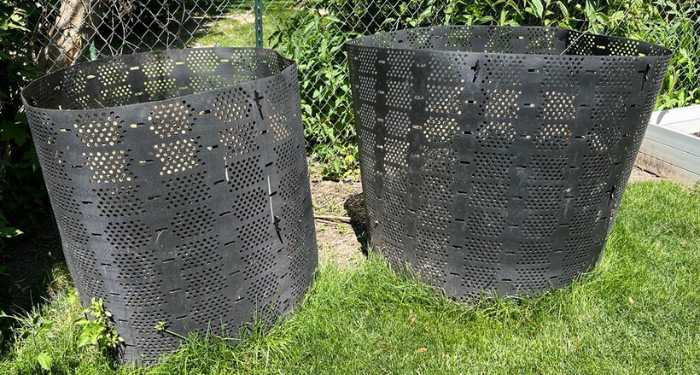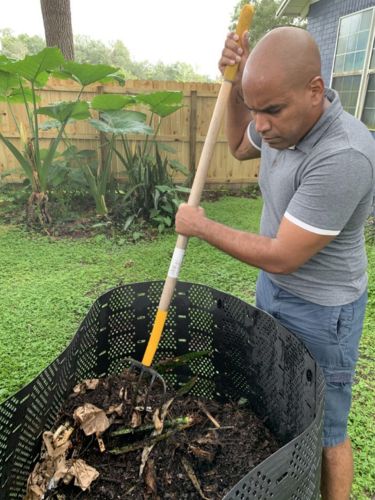Composting in Summer: How to Speed Up the Process with the GEOBIN® Composter
Posted June 12, 2023Summertime offers more than just the opportunity for backyard barbecues and sunbathing; it also presents the ideal conditions for an essential gardening process: composting. The season’s warmer temperatures accelerate the decomposition process, transforming your organic waste into nutrient-rich compost quicker. In this blog post, we’ll explore how to leverage the power of summer for composting using the GEOBIN Composter.

Understanding Composting
Composting is a natural process that turns organic material—like kitchen scraps and yard waste—into a nutrient-rich soil amendment. This “black gold,” as gardeners affectionately call it, boosts your garden’s health, enriches the soil, and reduces the amount of waste sent to landfills.
The Role of Heat in Composting
Heat plays a vital role in composting, making summer the perfect time to give your compost a jumpstart. Microorganisms that break down organic waste generate heat, and the warmer temperatures of summer help them work faster. This results in a more rapid composting process, transforming your organic waste into usable compost in less time.
Managing Your GEOBIN Composter in Summer
The GEOBIN Composter, with its expandable and ventilated design, is perfect for summer composting. Here’s how you can speed up and manage the composting process during the warmer months:
1. Maintain a Balanced “Diet”
The key to successful composting is maintaining a balance between green (nitrogen-rich) and brown (carbon-rich) materials. Green materials include fresh grass clippings, vegetable scraps, and coffee grounds, while brown materials include dry leaves, twigs, and paper. Maintain a ratio of roughly 3:1 of browns to greens to keep the compost healthy and quick to decompose.

2. Turn Your Compost
Turning your compost pile helps to aerate it, ensuring the microorganisms have the oxygen they need to break down the material. It also helps distribute heat evenly throughout the compost pile. The open design of the GEOBIN Compost Bin makes turning your compost simple and effortless. We recommend turning your compost every four to six weeks.
3. Ensure Proper Hydration
While the summer heat accelerates composting, it can also dry out your compost pile. A compost pile should be as moist as a wrung-out sponge. If it’s too dry, the decomposition process will slow down. Sprinkle water onto the pile if it seems dry during turning.
4. Manage Odor
Summer heat can sometimes exacerbate smells coming from the compost bin. Avoid adding meat or dairy products to your compost to minimize unpleasant odors. If the compost pile is too wet or contains too many green materials, it can also produce a foul smell. Balance it out by adding more brown materials.
Embracing the warmth of summer can do wonders for your composting process. By balancing the material in your compost bin, turning it regularly, and ensuring it’s properly hydrated, you’ll be on your way to creating your own nutrient-rich compost—right in time for your autumn gardening needs.

